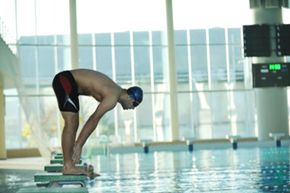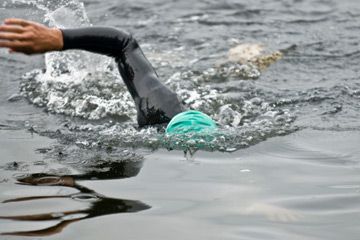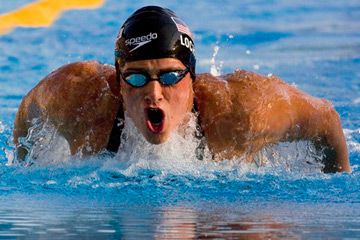When a few tenths of a second can mean the difference between winning a gold medal and going home empty-handed, swimmers are willing to do drastic things. Reducing drag and anything that causes excessive resistance in the water is one essential step in competitive swimming. Companies even borrow ideas from NASA and sink millions of dollars into developing cutting-edge suit technology [source: Boyle].
But if you can't afford a special NASA-designed swim suit, there are other ways to reduce drag. Today, most swimmers shave much of their body hair off before a big competition. The practice gained popularity after the 1956 Olympics, when Murray Rose and Jon Henricks came shaved and won gold medals for Australia [source: Montgomery].
Advertisement
It may seem hard to believe that something as menial as arm or leg hair can slow you down in the water. Is this simply the stuff of superstition? Or is there something to this ritual?
Many argue that, even if shaving doesn't help reduce drag, it gives swimmers a psychological boost because swimmers feel invigorated in the water after shaving. It's certainly understandable, because razors strip dead skin cells off the body in addition to hair, exposing a fresh layer of sensitive skin cells. This results in hypersensitivity to the water.
Olympic swimmer Janet Evans, for instance, has said that her team would agree not to shave at all until the night before a competition. The next day, the water would feel "exhilarating" [source: Evans].
But in an attempt to settle the issue, researchers have investigated if a shaved body actually glides through the water faster. A 1989 study found that it does, and the authors concluded that it's because shaving does indeed reduce drag [source: Sharp].
Swimmers usually refer to "taper and shave," which is a strategy used in the days immediately preceding a big competition. Tapering refers to rest from training, and coaches still disagree about how effective this is. And although shaving is more or less scientifically proven to be effective, it isn't without controversy. Some argue that youth shouldn't shave, because they aren't mature enough to handle the disappointment when their performance suffers in subsequent races.
It's also true that first-time shaves can have disastrous results if you aren't careful. Before you take a razor to your skin, look over our shaving tips on the next page.
Advertisement



